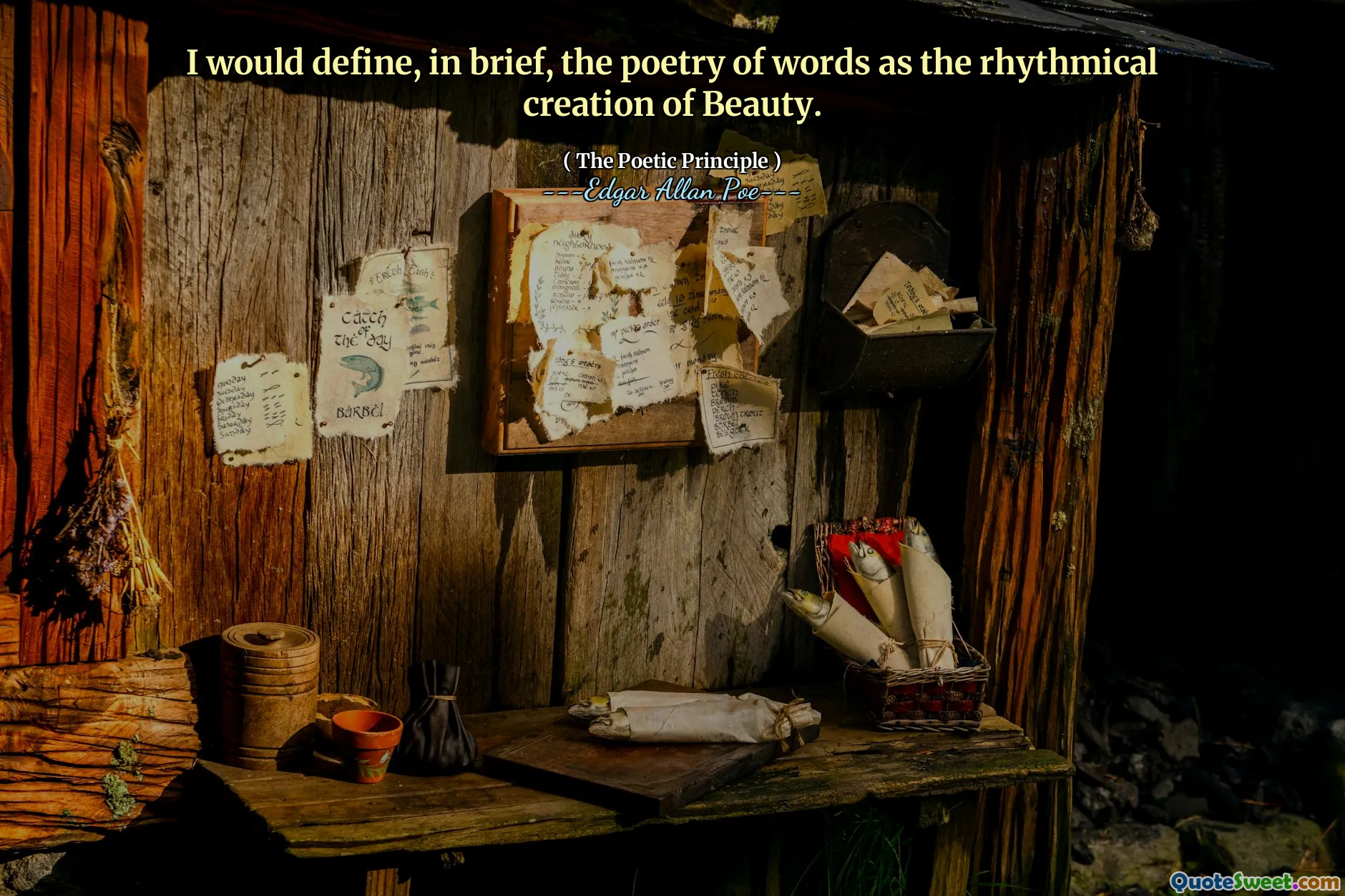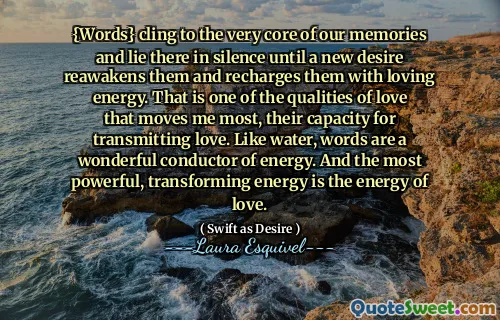
I would define, in brief, the poetry of words as the rhythmical creation of Beauty.
Edgar Allan Poe, in his work "The Poetic Principle," presents a concise definition of poetry as the rhythmic creation of beauty through words. This perspective highlights the significance of rhythm and aesthetic appeal in poetry, suggesting that the essence of poetry lies in its ability to evoke emotions and convey beauty in a structured yet artistic manner.
Poe's emphasis on rhythm indicates that the musical quality of language plays a vital role in poetry. By combining rhythm with beauty, he underscores how effective poetry can transcend mere communication, transforming words into an art form that resonates deeply with the reader's sensibilities.


